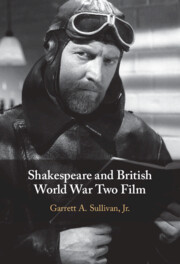
- Cited by 1
-
Cited byCrossref Citations
This Book has been cited by the following publications. This list is generated based on data provided by Crossref.
Semenza, Greg M Colón 2022. William Oldroyd’sLady Macbeth, Shakespeare, and Adaptation Studies. Adaptation, Vol. 15, Issue. 2, p. 285.
- Publisher:
- Cambridge University Press
- Online publication date:
- March 2022
- Print publication year:
- 2022
- Online ISBN:
- 9781108903776


